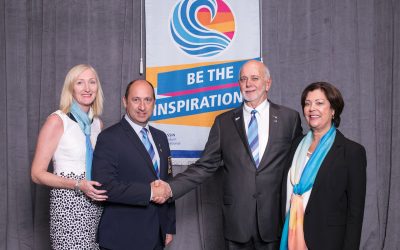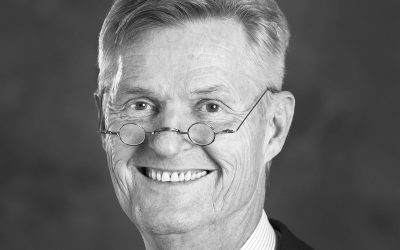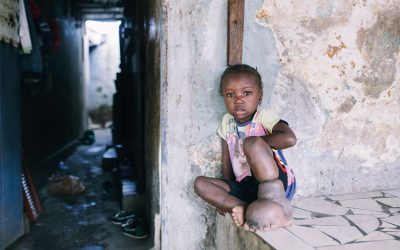Since infancy, Anne Wafula Strike and Colin Powell have lived with the life sentence that is polio.
From waking up in the morning, until last thing at night, Post-Polio Syndrome is a condition which affects polio survivors’ years after their initial infection.
Take the most basic functions of daily life such as bathing, dressing, even making a cup of tea; each of these can become a gruelling routine.
Polio never goes away.
Anne and Colin have watched on as the world has been swamped by a tsunami of polio vaccine to eliminate this deadly virus from the face of the earth.
Over the last 30 years, Rotary has donated $2 billion to the eradication effort, protecting more than 2.5 billion children from the disease.
And while both are End Polio Now / Purple4Polio Ambassadors, supporting Rotary’s efforts, they collectively ask one important question: have we forgotten the polio survivors?
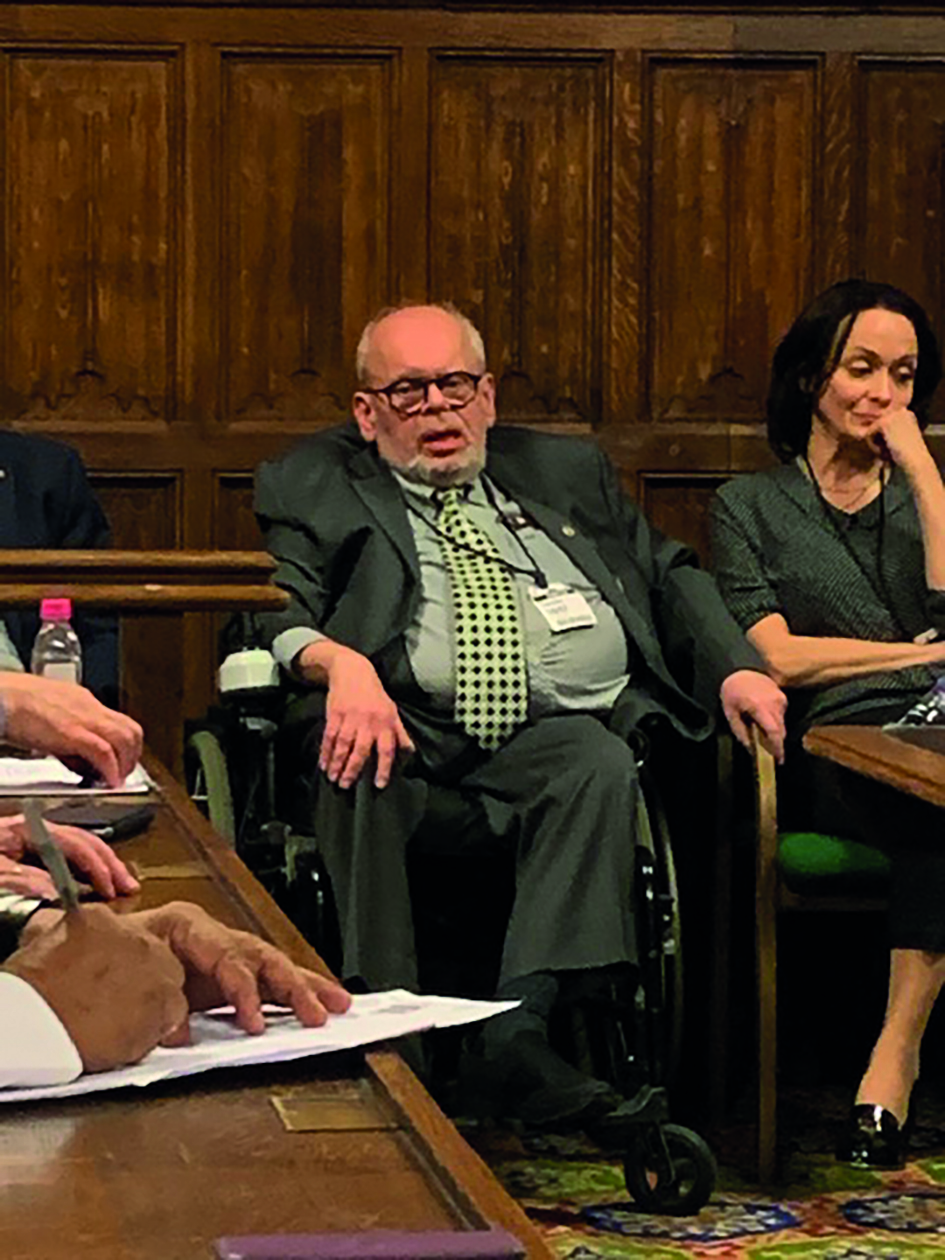

Colin Powell contracted polio when he was just six-months-old
“The impact of having polio for a lifetime is phenomenal,” explained Colin, 71, who fell ill aged just six months old after an innocent swimming trip with his father.
He joined Radlett Rotary in Hertfordshire in 2009.
“Hospitalisation took away my childhood. I didn’t start my education until I was 11. The reconstruction surgery involved removing half of my left rib cage, and putting that into my spine to act as an internal support.
“I now have a high degree of paralysis in both of my legs, and respiratory problems which have increased over the years. I now spend one third of my life, eight hours a day, on a respirator in order that I have enough oxygen to face the next day.”
Anne’s story began more than 6,000 miles away in Kenya where polio struck when she was two-years-old. She and her family faced enormous prejudice from villagers who believed she was cursed.
She moved to England in 2000, and four years later became the first Kenyan wheelchair athlete to represent her country when competing at the Athens Paralympics.
Two years later Anne, who now lives in Essex, became a British citizen.
And her story is movingly told in the book ‘In My Dreams I Dance’.
“I would commend Rotarians for the amazing work they are doing to get rid of polio. We all agree that our goal should be zero. Anything less is unacceptable,” she explained.
“But I wonder whether we are able to take into consideration the polio survivors, because these are people who experience the effects of polio in later life.”
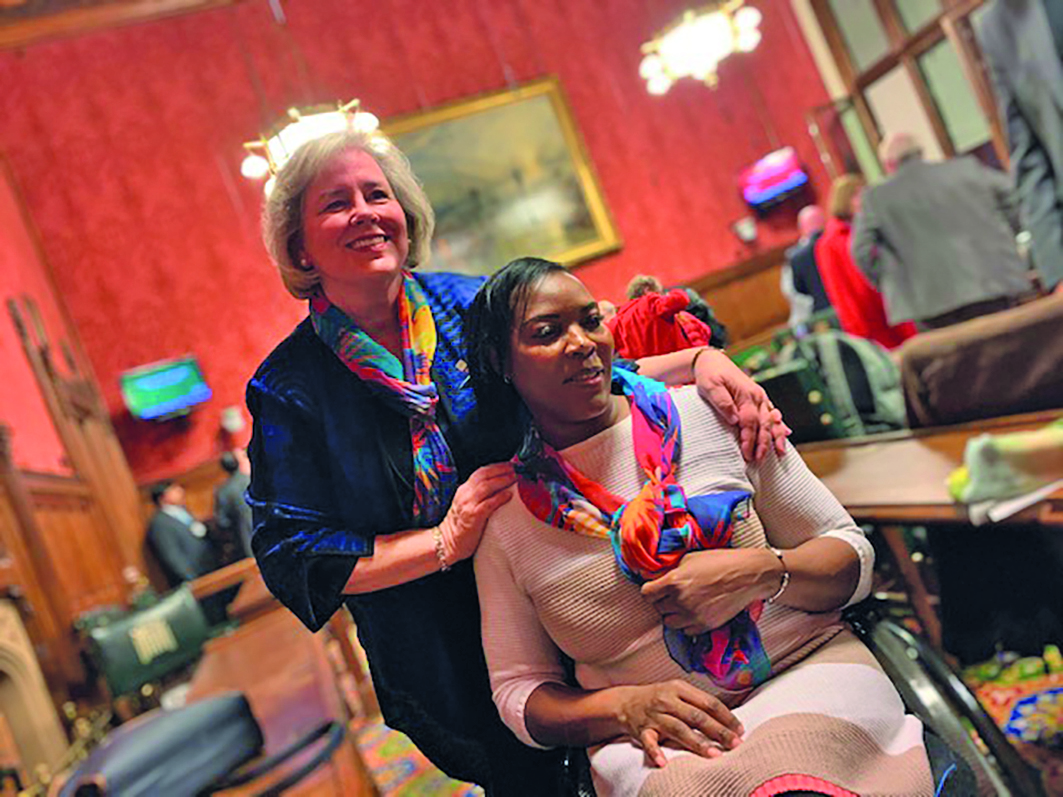

Anne Wafula Strike contracted polio at age 2, and has been a successful wheelchair racer, competing at the 2004 Athens Paralympics.
Anne recalled a trip to Nigeria in 2014 when she was invited by Sir Emeka Offor to support a polio vaccination programme in the country which has just been given a clean bill of health and prescribed as polio-free by the World Health Organization.
But the work in West Africa also supported polio survivors. “We gave out about 400 tricycles, and many were polio survivors who came crawling on their hands and knees for the tricycles,” she said.
“Is this not something we should be considering with supporting polio survivors?
“What broke my heart was seeing the calluses on their hands and knees from crawling across the ground. It meant they had spent their life in that position.
“It is good to get rid of polio, but what are we going to do with all the survivors?
“How are we going to encourage other nations and countries to put structures in place to support the survivors?”
Anne reflected that although the world remains in the grip of the COVID-19 pandemic, we should not lose sight of the devastating impact of polio.
Even though there hasn’t been a case of polio caught in the UK since the 1980s, there are around 120,000 polio survivors, according to The British Polio Fellowship.
Colin Powell is also on the same page when it comes to re-directing some of the polio focus towards the survivors. Funding more wheelchairs would be a start, he said.
It is good to get rid of polio, but what are we going to do with all the survivors?”
“There are a lot of survivors who we should not be ignoring while we are eradicating polio,” he suggested. “We, as Rotarians, must have some conscience and heart to look after their needs.”
“Think of it this way. If you go into a village today with a vaccination team to inoculate children, what about the child who contracted polio in the same village the previous day?
“Do we not have a conscience to look after their needs for their life? Can we, as humans, just walk away and say we have done the job by giving the vaccine?
“The survivors have a lifetime ahead of them with challenges that surely, within Rotary, we could find a little corner of funding to look after them.”
Fact File: Post-Polio Syndrome
- Post-Polio Syndrome is a condition which affects polio survivors’ years after recovery from an initial acute attack of the poliomyelitis virus.
- Most often, polio survivors start to experience gradual new weakening in muscles that were previously affected by the polio infection.
- The most common symptoms include slowly progressive muscle weakness, fatigue, and a gradual decrease in the size of muscles (muscle atrophy).
- Pain from joint degeneration and increasing skeletal deformities such as scoliosis (curvature of the spine) is common and may precede the weakness and muscle atrophy. Some individuals experience only minor symptoms while others develop visible muscle weakness and atrophy.
- Post-Polio Syndrome is rarely life-threatening, but the symptoms can significantly interfere with an individual’s ability to function independently.
- Respiratory muscle weakness, for instance, can result in trouble with proper breathing, affecting daytime functions and sleep.
- Weakness in swallowing muscles can result in aspiration of food and liquids into the lungs and lead to pneumonia.
Source: National Institute of Neurological Disorders and Stroke
Colin Powell looks forward to the day when the world becomes polio-free and he remains firmly behind the pressing need to raise more funds to reach the end game.
But drawing a level parallel with the Paul Harris Fellowship he received from Rotary for his work as an advocate for polio, Colin added: “I got a badge last year with PHF on it. I don’t know if you know what it means? For me it means Polio Handicapped Forever.
“The point is, once someone gets polio it is a life sentence.”
Professor David Salisbury, who is chairman of the Global Certification Commission, believes that when the world first talked about polio legacy, while eradication and remaining vigilant against new cases stood at the forefront, the issue of polio survivors was left behind.
He explained: “I believe I said at the time about discussions around legacy that one of the things which was forgotten were people who had previously had polio and they needed attention, recognition and awareness of Post-Polio Syndrome.
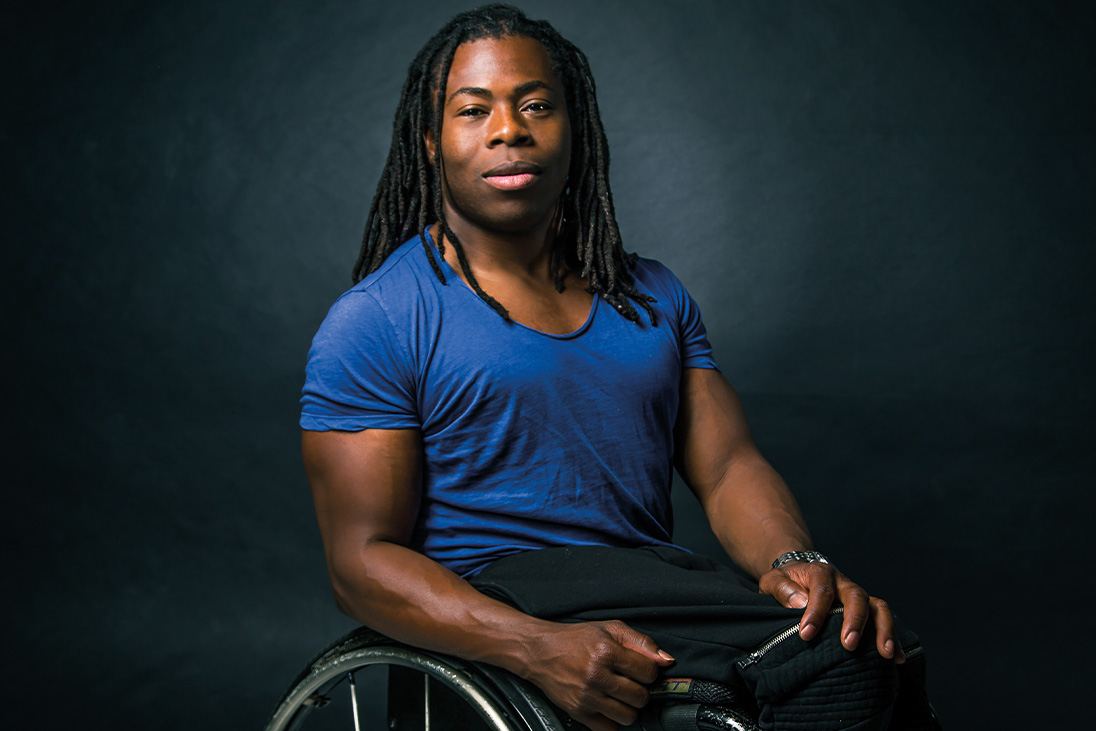

Polio survivor and TV presenter Ade Adepitan
“The paralysis of polio is not static. As people with polio get older, so the symptoms and signs get worse. Therefore, I believe that this part of the legacy of polio eradication should have been included.
“Maybe it is not too late to be included, giving support to those people for whom vaccines were not available and who were, indeed, paralysed.”
Michel Zaffran, who leads the World Health Organization’s polio eradication programme agreed. He pointed out that his own Rotary club in France was raising resources for polio survivors.
“We have been focusing for many years on the visibility of the programme, which is on getting rid of the virus so that less people are affected.
“The resources of the initiative have not been directed towards the survivors,” he said.
“Last year on World Polio Day, there was the launch of a non-profit organisation to raise resources for polio survivors. But I would say it is not at the level which it should be.
“It needs more and more attention, it needs more and more resources.
“My Rotary club is increasingly raising resources for polio survivors because it is also a way of advocating that the job is not finished when we get rid of the virus.
“We need to take care of the people who have survived polio and who have been affected by this terrible disease.”
Colin is currently presenting Zoom talks to individual Rotary clubs entitled ‘Polio is more than a word’. He can be contacted by emailing talkpolio@powellnet.co.uk
Anne is also giving virtual talks on the effects of polio to raise £10,000 to buy 110 wheelchairs for Kenya. She can be contacted by emailing: olympiastrike@hotmail.com









